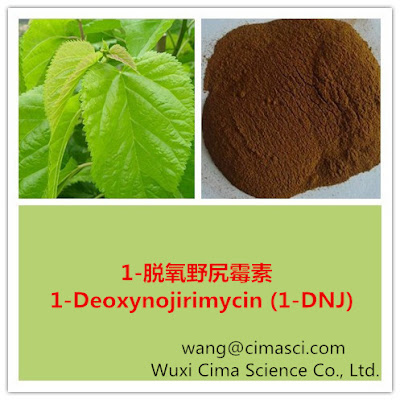CDP Choline / Citicoline / 987-78-0 / Cytidine 5’- diphosphocholine
Citicoline (Cytidine 5’- diphosphocholine) is a mononucleotide composed of ribose,
cytosine, pyrophosphate and choline that is involved in the synthesis of phospholipids.
Citicoline is a powerful anti-aging ingredient that has been used internationally for the
promotion of optimal neural and cognitive function. Scientific studies with Citicoline have
indicated effectiveness in maintaining normal cognitive function with aging.
Description
An odorless, white crystalline powder
Chemical Data
CAS No.: 987-78-0
Formula: C14H25N4O11P2
Molecular Weight: 488.33
Structural formula:
Clinic Data
CDP-choline (cytidine-5'-diphosphocholine) is a unique form of choline that readily passes through the blood-brain barrier directly into brain tissue. CDP-choline is a rate-limiting intermediate in the biosynthesis of phosphatidylcholine, an important component of the neural cell membrane. CDP-choline has been found to be of value in studies on animals and humans.
CDP-choline (cytidine-5'-diphosphocholine) is also known by its drug name, Citicholine. Citicoline is approved as a drug in Europe and Japan for use in stroke, head trauma, and other neurological disorders. It is presently being evaluated in phase II/III stroke trials in the United States. (D'Orlando and Sandage 1995)
Choline and pantothenic acid (vitamin B5) are used to produce acetylcholine, the major neurotransmitter that transmits nerve impulses between neurons. Choline is also needed for cell membrane integrity, and to move fats in and out of cells. Choline is, therefore, essential for proper brain function as the brain is composed of millions of nerve cells and is composed almost entirely of fats. CDP-choline may reduce central nervous system ischemic injury by stabilizing cell membranes and reducing free radical generation.
Animal Studies of CDP Choline
There have been five animal studies conducted on CDP-Choline:
CDP-choline alone and in combination with urokinase resulted in a significant decrease in neuronal damage in a study on rats with focal ischemia induced by occlusion of the middle cerebral artery. (Shuaib, Yang et al. 2000)
CDP-choline was shown to significantly attenuate blood-brain barrier (BBB) dysfunction after transient forebrain ischemia was induced in gerbils. CDP-choline substantially attenuated edema at 3 days and reduced neuronal death after 6-day reperfusion. (Rao, Hatcher et al. 1999)
In a study of rats with induced carotid artery embolisms, CDP-choline was shown to reduce the median infarct size from 37% in the control group to 22% at a dose of 250 mg/kg and 11% at a dose of 500 mg/kg. CDP-choline was also studied in combination with recombinant tissue plasminogen activator (rtPA). The infarct size was 24% with rtPA 5 mg/kg, 11% with rtPA and 250 mg/kg CDP-choline, and 19% with rtPA and 500 mg/kg CDP-choline. (Andersen, Overgaard et al. 1999)
A study examined the effects of CDP-choline with medial cerebral artery occlusion induced in spontaneous hypertensive rats. CDP-choline significantly improved behavioral dysfunction. (Aronowski, Strong et al. 1996)
A study of CDP-choline used to treat ischemia induced in rats demonstrated that CDP-choline significantly reduced infarct volume with a trend towards reducing brain edema and mortality. (Schabitz, Weber et al. 1996)
Human Studies of CDP Choline
Four studies of intravenously administered CDP-choline have been conducted outside the United States:
A multi-center double-blind placebo-controlled study of citicoline (1000 mg per day intravenously for 14 days was conducted on patients with acute, moderate to severe cerebral infarction. One hundred thirty-three patients received CDP-choline treatment, and 139 received placebo. The group treated with CDP-choline showed significant improvements in level of consciousness compared with the placebo-treated group, and CDP-choline was an entirely safe treatment. (Tazaki, Sakai et al. 1988)
A double-blind placebo-controlled study of citicoline (750 mg per day intravenously for 10 days) used within 48 hours of stroke onset showed a significant improvement on a quantified neurological assessment scale rating motor strength, muscular force, sensation, higher cortical function, and ambulation at 90 days. Patients treated with citicoline were significantly more likely to be ambulatory compared with placebo-treated patients at 90 days. (Goyas, Bastard et al. 1980)
A second double-blind, placebo-controlled trial of intravenous citicoline (250 mg three times a day for 10 days) in stroke patients treated within 48 hours of their symptoms found that a significantly higher percentage of patients had a very good to fairly good recovery with citicoline versus placebo treatment at 10 days after stroke. (Boudouresques and Michel 1980)
A small double-blind, placebo-controlled study examined the effects of citicoline (1000 mg per day of intravenous for 30 days) or placebo in 19 patients with acute stroke treated within 48 hours. In comparison to their baseline assessments, 76% of the citicoline-treated patients demonstrated improvement compared with only 31% of the placebo-treated patients. (Corso, Arena et al. 1982)
Where Can I Buy CDP Choline / Citicoline / 987-78-0 / Cytidine 5’- diphosphocholine?
Cima Science Co., Ltd. as an innovator and developer of active ingredients for nutraceutical, pharmaceutical, food, cosmetics industries, can supply CDP Choline / Citicoline / 987-78-0 / Cytidine 5’- diphosphocholine with trusted quality and moderate price. Coa/Spec, samples or other documents and materials will be provided upon your request. Please feel free to contact me: wang@cimasci.com



















